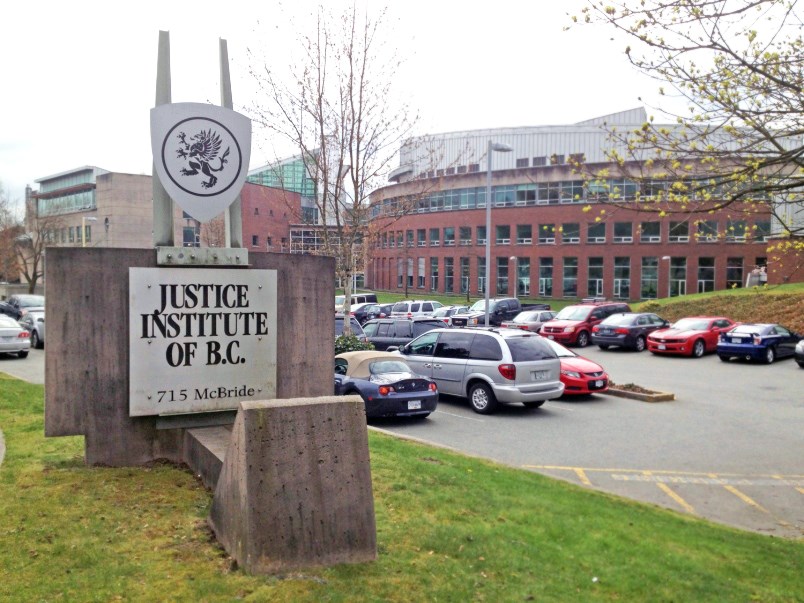Have you ever wondered where B.C. teachers go when they screw up?
Not the ones who commit actual crimes – those go to jail and have their licences taken away when they’re caught.
But what about the ones who (according to Teacher Regulation Branch documents) perform “inappropriate Marilyn Monroe impersonation dance routines” or fly off the handle and call their students “f***ing bitches” or give them unsolicited neck rubs or tie their legs together with another student to force them to get along?
What about the teachers who give students driving lessons in the school parking lot in the middle of class because they did well on a test or tell them “Your mother lies when she tells you she loves you” or pretend to shoot Grade 3/4 students if they’re not paying attention?
What do we do with teachers who video special needs students having a meltdown or send students personal text messages or tear up their work or shoot them with staples or leave them unsupervised long enough to cause explosions outside shop classes?
We send them to New Westminster.
'It really runs the gamut'
Since March 2016, the Justice Institute of B.C. (JIBC) in New West has offered three three-day courses aimed at teachers who blow it in the areas of professional boundaries, classroom management or conflict resolution.
The institute developed the courses at the recommendation of former B.C. Supreme Court judge Bruce Preston, who has served as the commissioner of the ministry of education’s Teacher Regulation Branch (TRB) for the last five years.
Is he ever surprised at the multifarious ways teachers screw up?
“Oh yeah, constantly,” he told the Record. “It really runs the gamut, the exhaustion of the opportunities for doing something improper in a classroom or something that’s going to get you in trouble as a teacher.”
The Teacher Regulation Branch, which is responsible for regulating the approximately 70,000 individuals who hold B.C. teaching certificates, used to run its own professional boundaries course, but Preston found more was needed, and the TRB didn’t have the capacity to offer it in-house.
“It was also important to keep the provision of the courses more arms-length from the commissioner and the TRB, so that courses are administered entirely independently,” reads an emailed statement from the ministry of education.
Since March 2016, JIBC has offered the Reinforcing Respectful Professional Boundaries course three times to a total of 45 teachers; the Creating a Positive Learning Environment (classroom management) course three times to a total of 44 teachers; and the Mindful Educator in Managing Conflict course once to 16 teachers.

Of the 105 participants so far, 32 have been required to take the courses as part of a disciplinary action by the TRB.
The ministry doesn’t keep data on teachers referred directly by school districts and independent schools for issues or complaints that didn’t make it to the TRB or on teachers who just signed up as part of their own professional development.
Citing privacy concerns, the ministry also wouldn’t disclose the districts or independent schools of origin for the discipline cases that were sent through the TRB.
Teachers sent by the TRB are required to take the $688.60 courses on their own dime and their own time during the summer or spring break.
'It's a training exercise'
But why should a three-day course do the trick for these teachers when they already have four years-plus of university education?
The Record put that question to Education Minister Rob Fleming.
He was not made available for an interview but said in an emailed statement that B.C. teachers engage in professional development throughout their careers, and, when problems do arise, there’s “a solid system in place to ensure concerns about teacher competence and conduct are addressed fairly and in the public interest.”
He also said this:
“Teachers are certified only when they have the necessary academic qualifications, teaching experience and personal characteristics required to work with children.”
Preston, whose job has been to deal with teachers who mess up, sees things differently.
It would be “astounding,” he said, if there weren’t a few bad teachers among 70,000.
“It’s like anything else; there’s bad dentists, there’s bad doctors, there’s bad lawyers,” he said. “People get into these professions and, really, it turns out they weren’t cut out for it, but they’re sort of stuck with it. Those are the ones that flounder; those are the ones that fail.”
While participants, instructors and employers have given feedback on the JIBC courses, there’s no empirical evidence they work, according to Preston – but he’s satisfied they do.
“You can’t track individual teachers’ performance in the classroom on a scientific kind of basis before and after a course, but we’re satisfied they do,” he said.
“The Justice Institute has a good record in this kind of training, and it is training – there’s an educational component, but it’s a training exercise. … University is an education exercise; training is not the strong suit of universities. In law school, you don’t get training in the courtroom.”
Whether or not they are a perfect solution, the remedial courses are useful, according to Preston.
“They’re more useful than simply suspending the teacher, taking the teacher out of the classroom and putting a TTOC (teacher on call) in there for a week or so. That doesn’t solve anybody’s problem,” he said.
'It’s a whole new world out there'
The issues that land teachers at the Justice Institute often stem from youth and inexperience, according to the commissioner.
“In the last annual report, I talked about the kind of scenario that some teachers find themselves in, and that is that they think, ‘You know, I’m a young teacher. I’m going to do teaching differently. I’m going to, sort of, be a friend for the students. I’m going to be there for the students,’ and that’s a slippery slope,” he said. “Maintaining the professional relationship is so important.”
Teachers on call, often young recent university grads, are another segment of the teaching population often named in TRB complaints.
“Teachers who are teaching on call, well, you remember, it’s a game that students play with the teacher on call,” Preston said. “You have to be pretty good with classroom management skills to navigate the TTOC (teachers teaching on call) role now, and students are much less respectful of authority than they were a number of years ago. They’re far more challenging.”
And technology hasn’t always been a friend to teachers who struggle, according to the commissioner.
“We see abuses of social media by teachers that run through a lot of our consent resolution agreements,” he said. “And students, they’ve got the cellphone down under the desk during the class; they record what the teacher is saying and so on and so forth. It’s a whole new world out there for teachers, and I think everybody’s struggling with that, cellphone policies and so forth.”
Special needs, special challenge
Besides problems with professional boundaries, classroom management and conflict resolution, Preston said he has seen a fourth area of concern emerging from complaints against teachers: interactions with special needs students.
The commissioner said he will discuss the subject – including results from studies in 2016 and 2017 – for the first time in his final annual report to the minister at the end of this month. (Preston’s five-year term expired on Nov. 8.)
The Teacher Regulation Branch deals with complaints from the public and with reports from school districts and independent schools.
Of about 200 complaints and reports a year, a little more than half end up being investigated, and even fewer end in a disciplinary action against a teacher, according to Preston.
While some of B.C.’s approximately 60,000 practicing public and private school teachers do blow it – sometimes in colourful, sometimes in sinister ways – Preston said the number ultimately has to be taken in context.
“That’s a tremendous number of teachers, and very, very few that get into the disciplinary net,” he said.



